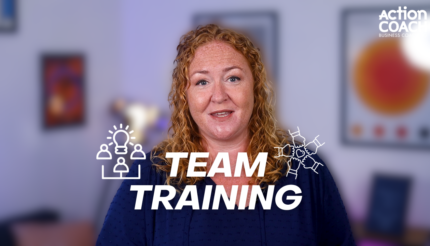“People make Glasgow” is a slogan that’s been used for many years in Glasgow to describe their people.
Glasgow is my home town and they pride themselves with how warm and welcoming their people are. People are proud to hail from Glasgow and often wear it as a badge of honour.
When it comes to our businesses – how would your team describe their relationship with your business? Would they be proud to work there, would they talk about your business to others and talk about what a great place it is to work? If I were to ask your team right now to tell me what it’s like to work with you – what would they say?
According to Gallup, an average company in the UK statistically states that only around 1/10 of us are highly engaged at work- meaning we love what we do. We are driving the company forward and helping it scale and grow. Most of us, around 7/10, come to work and are disengaged. That is we turn up, and are there in body, but not in mind. We are going through the motions. And alarmingly 2/10 us are highly disengaged, meaning we don’t like what we do. We don’t want to be there.
Now these are UK wide stats – it may well be that’s not the case for you, but it is for many. Having a workforce that’s disengaged, or having people whose values and mindset simply don’t align with what you are doing, can be damaging for all. For the business, you are never going to get the best from these people. They might damage your brand or your product or service. They might have higher sickness rates or absence rates – meaning precious management time is spent here rather than on running the business.
The good news is there are lots of ways we can work on getting our team aligned and motivated, it just takes a bit of planning, patience and work. The first thing we need to do is make sure they know what’s expected of them – this is one of the biggest frustrations – when they think one thing and you think another – is easily the most common issue I see.
There are three main things we need to get clear on:
- The numbers, the KPIs/measures of success/WGLL. Do they know what they are shooting for and can they keep score to see if they are doing a good job?
- Behaviours – are you really clear with them on how they should behave around here? What’s okay and what’s not? Good values will help you with this.
- Standards – or ‘Teamship’ rules. What are the rules of the game? Our standard of performance, these are minimum expectations, perhaps around team meetings or timekeeping and the like.
So I’d ask you to reflect on your workplace. What are your team feeling about working there? What steps do you need to take to improve it?





